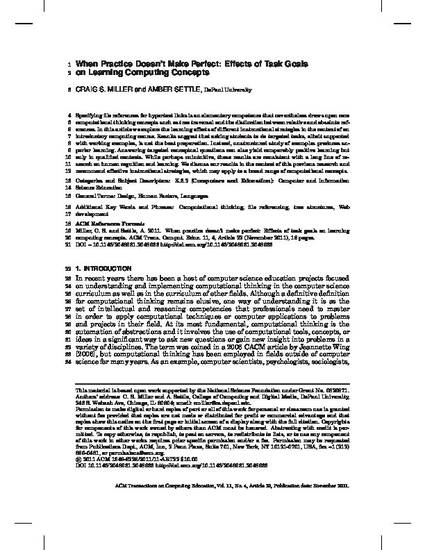
Article
When Practice Doesn’t Make Perfect: Effects of Task Goals on Learning Computing Concepts
ACM Transactions on Computing Education
(2011)
Abstract
Specifying file references for hypertext links is an elementary competence that nevertheless draws upon core computational thinking concepts such as tree traversal and the distinction between relative and absolute references. In this article we explore the learning effects of different instructional strategies in the context of an introductory computing course. Results suggest that asking students to do targeted tasks, albeit supported with working examples, is not the best preparation. Instead, unstructured study of examples produces superior learning. Answering targeted conceptual questions can also yield comparably positive learning but only in qualified contexts. While perhaps unintuitive, these results are consistent with a long line of research on human cognition and learning. We discuss our results in the context of this previous research and recommend effective instructional strategies, which may apply to a broad range of computational concepts.
Disciplines
Publication Date
November 1, 2011
DOI
10.1145/2048931.2048933
Citation Information
Craig S. Miller and Amber Settle. "When Practice Doesn’t Make Perfect: Effects of Task Goals on Learning Computing Concepts" ACM Transactions on Computing Education Vol. 11 Iss. 4 (2011) p. 22 Available at: http://works.bepress.com/asettle/36/
